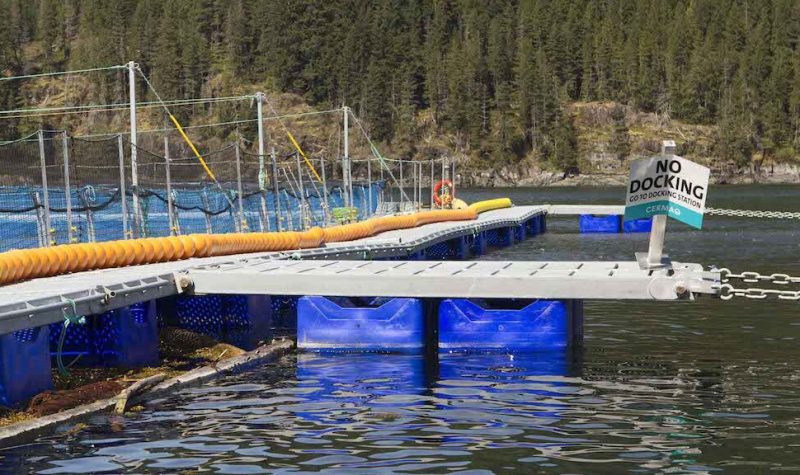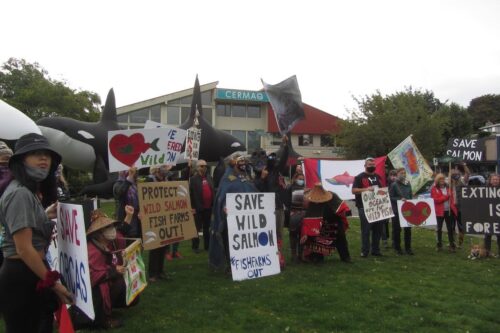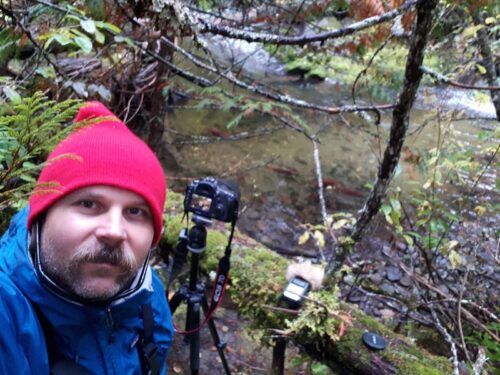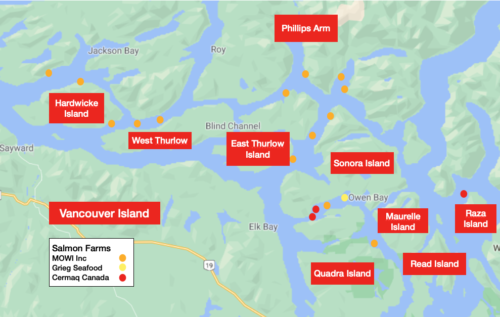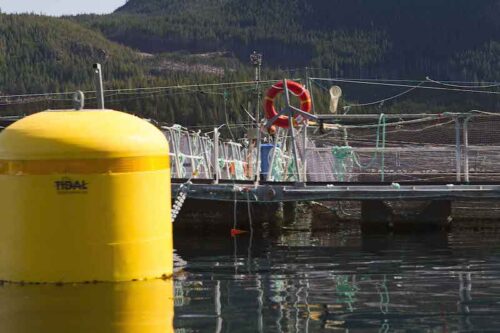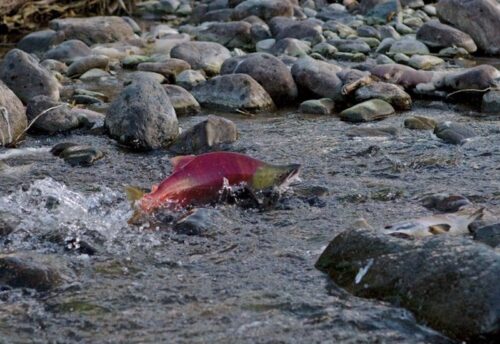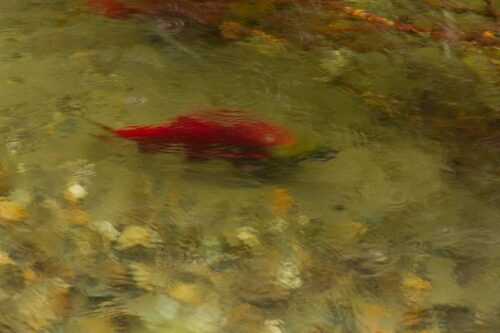By Roy L Hales
The licenses for 19 salmon farms in the Discovery lslands expired today. Bernadette Jordan, Minister of Fisheries and Oceans Canada (DFO) is reissuing licenses for 18 months, during which time “no new fish of any size may be introduced into Discovery Islands.” “Fish at the sites can complete their growth-cycle and be harvested,” but “all farms be free of fish by June 30th, 2022.”
Wow!
“I was quite pleased. It is about time we had this decision. My initial thought was ‘Wow!’ I think there are a few things to be conscious about, but overall I think this is … wow! I’ve been working on this for over 15 years, it is kind of surreal,” said Stan Proboszcz, Science Advisor with the Watershed Watch Salmon Society.
First Nations Input
In the press release in which they announced this decision, DFO states “Consultations with the seven First Nations in the Discovery Islands area provided important guidance to the Minister and heavily informed the decision.”
In a recent interview with Cortes Currents, elected Hegus (Chief) John Hackett, of the Tla’amin First Nation stated that the Tla-amin, Klahoose and Homalco all told the DFO, “We do not want the fish farm licenses renewed.”
Together with the K’omox, they were among the 101 First Nations that signed a joint letter calling for a transition to land based fish farms.
Earlier this year, the We Wai Kai (Cape Mudge)and Wei Wai Kum (Campbell River) issued a joint press release calling for the closure of the Shaw Point Fish farm:
“The escape of Atlantic salmon, the delay in notifying the Nations about the escape, and the ongoing concerns about the impacts of sea lice on juvenile migrating salmon has brought this issue to a head.”
The Salmon Farms respond
Cermaq Canada and Mowi Inc directed Cortes Currents to the BC Salmon Farmers Association, which emailed:
“This decision has significant implications and puts salmon farming in B.C. and across Canada at risk. This comes at a bad time, during a pandemic when local food supply and good local jobs have never been more important. We have just received this decision, and will be taking some time to consider it and speak with the numerous companies and communities involved in salmon farming in the province before commenting further.”
Why 18 months before closing down?
Stan Proboszcz expressed some concerns about the decision to renew fish farm licenses for another 18 months.
“The vast majority of the fish farms in the Discovery Islands should be able to harvest out naturally, through their growing cycle, in about six months. So that’s my one question, is why wait for 18? There are legitimate reasons for that, potentially. When you are decommissioning a salmon farm, as we’ve seen happening in the Broughton Archipelago … is the farms still need to be licensed … There is a lot of infrastructure there.”
He is concerned about the fact these farms will still be operational during next Spring’s salmon migration.
“The other thing is if we have an election, which some people are thinking we may have next year, I wouldn’t want to see a new Federal Government roll back this decision because the licenses will still be in play.”

The Broughton Archipelago by Natalie Lucier via Flickr (CC BY SA, 2.0 License)
What does closing down the Discovery Islands mean for other fish farms?
“That is a good question. Just north of the Discovery Islands, in the Broughton Archipelago, the First Nations have worked with the province primarily, and the industry, in a transition plan to get fish farms out of that area. Now we see a second huge area [about to be decommissioned], the Discovery Islands, which is about a third of the industry. So the big region left is on the west coast of Vancouver Island. There are also a few fish farms on the north end of Vancouver Island and a few in the Central Coast. So I’m not sure what it means, but I think it is really good news for wild salmon,“ said Proboszcz.
Sea Lice
I had two very different questions for Proboscz.
Firstly, in a previous interview independent biologist Alexandra Morton said, “In the Broughton Archipelago, where the [First] Nations are telling the industry what to do, they all kept their lice under control last spring. The industry posts their sea lice numbers on their websites. About fifteen years ago the province said, ‘Look, you guys can have three lice per fish and after that you have to deal with them.’ So in the Broughton, they kept it under. Everywhere else, they went over, including the Discovery Islands where 50 per cent of the farms went over.”
This begs the question,”Is it possible that fish farms could bring the sea lice situation under control?”
He responded, “Nothing has been published on this yet … but the theory is lice weren’t a problem in the Broughton because farms are being transitioned out of there.”
(I.e.- There isn’t as high a density of fish farms.)
The move to land based fish farms
On a number of occasions, BC salmon farming companies have said it is too expensive to move on land, but the move to land based fish farm is already underway in other parts of the world.
“That is an initiative that is happening right now, particularly in the United States. There are a number of farms that are being proposed in places like Maine. There is also a farm being established in Florida which, when it is complete, would have a production level about level with the whole British Columbian open net industry. So there are huge farms that are popping up on land. There is also some discussion about a land based farm proposed near Campbell River,” said Proboszcz.


